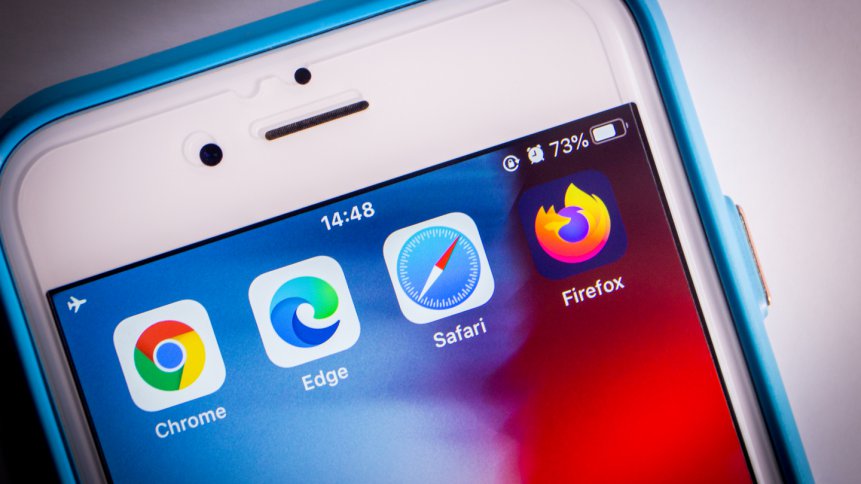Busting the myth of ‘Incognito’ browsing. Is it really private?

- Yes, every browser has an incognito mode—but browsing in it doesn’t necessarily deliver us the privacy we envision.
If you select the “incognito” mode of browsing on Google Chrome, the icon shown is that of a hat and glasses, indicating that you are in disguise. Even Mozilla Firefox, Opera and Apple Safari have the same concept under the name of “Private Browsing,” and Microsoft Edge under “InPrivate.” Whatever the name, browsing the web in a “private” or “incognito” mode might seem like a great idea for those concerned with their privacy and security. But the reality is far from the promise.
In fact, there has been an overwhelming amount of anecdotal evidence from security experts indicating that so-called private browsing isn’t nearly as private as it’s cracked up to be. Yes, using those options does add a certain level of protection online, but it certainly stops short of preventing the user from being tracked altogether. In fact, routers, firewalls, proxy servers, RAM chips or the Domain Name System (DNS) cache could all still hold a record of your browsing history while you’re in “incognito” mode.
At most, private browsing modes are best suited to protecting your web activity from other people who use the same devices. Beyond offering that local shield however, they do very little. With most browsers, the private or incognito mode is designed to minimize the digital footprints you leave behind when you surf the web.
What does incognito browsing mean?
Most private browsing modes have one thing in common: once you close your private browsing window, your browser no longer stores the websites you visited, cookies, usernames, passwords and information from forms you filled out during that private browsing session. That also means that each time you open a new private browsing window, you are given a kind of “clean slate,” in the form of a brand new browser window that has not stored any browsing history or cookies.
Therefore, when you close your private browsing window, the slate is wiped clean again and the browsing history and cookies from that private browsing session are deleted. A big issue arises though when it comes to bookmarks or downloads during incognito browsing. Despite surfing the web privately, if a user bookmarks a site or downloads a file while using private browsing mode, the bookmarks or files will remain in the system.
Some browsers, including Safari and Firefox, offer some additional protection against web trackers, but in general, private browsing mode does not guarantee that your web activities cannot be linked back to you or your device. Most importantly, private browsing mode does not prevent websites from learning your internet address. Nor does it prevent your employer, school or internet service provider from seeing your web activities by tracking your IP address.
So when or why is incognito browsing actually used? Well, it was primarily designed to make it easier to use shared computers. With private browsing, one can remain incognito on a work device since information won’t be stored on the computer – but it ends there. The bad news is that your employer, internet service provider, the websites you visited, and government agencies may still be privy to information including your browsing history, passwords and cookies.
In short, private browsing is not offering the complete mask of privacy you envision.
What Incognito mode doesn’t do
On June 2, 2020, a class-action lawsuit was filed against search engine behemoth Google, claiming that the company illegally invades the privacy of users by tracking people, even when they choose to surf using a private mode. The lawsuit, which sought at least US$5 billion in damages, said that even when a user chose private browsing to have their data protected, Google used tracking tools—like Google Analytics, Google Ad Manager and other applications and website plug-ins, including smartphone apps—to gather user data.
That simply means that although cookies and tracking data are deleted when your private session finishes, they can still be used while the session is active, linking your activities between various accounts and profiles. That means if, say, you are signed into Facebook, the social media company might well be able to see what you’re upto on other sites and adjust its advertising accordingly, even in incognito mode.
Overall, the reach of ad networks and tracking technologies makes it difficult to stop them tracking you, even under the protection of private browsing mode. Sign into any of your accounts in fact, and you can easily be tracked, even in private mode. It also does not prevent you from downloading a virus or malware to your device.
That said, the limits of incognito mode highlight just how hard it is to stay invisible on the web. Perhaps, as experts advise, to keep any tracking down to an absolute minimum, it’s wiser to deploy a reliable VPN program whenever you connect to the web.








